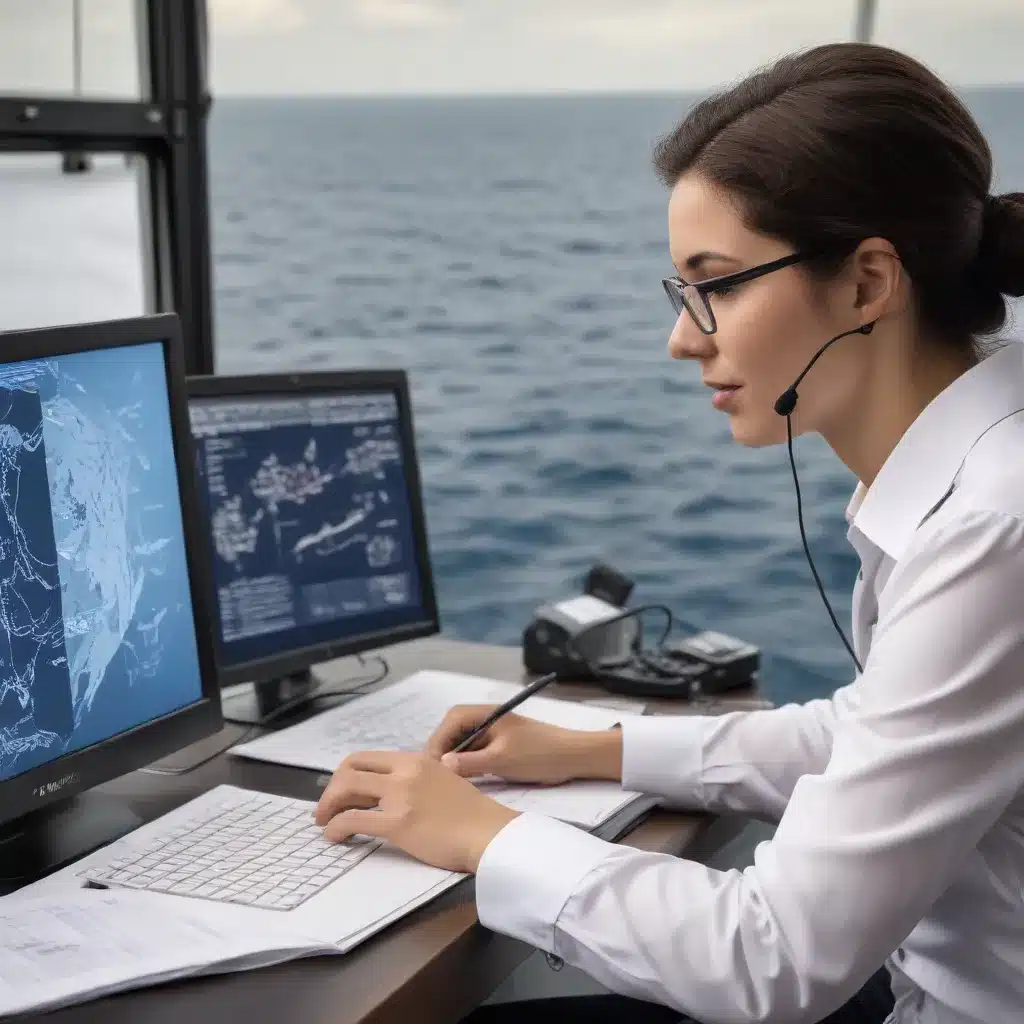
The Growing Significance of Maritime Communication
The maritime industry plays a vital role in global trade and transportation, serving as a major contributor to the world economy. With the rapid advancements in communication technologies, artificial intelligence, and the widespread adoption of the Internet of Things, the maritime sector is undergoing a significant transformation. At the heart of this evolution lies the critical importance of effective communication, which ensures the smooth operation of maritime activities.
As researchers delve into this dynamic domain, it is crucial to analyze the prevailing research trends to gain valuable insights that can shape the future of maritime communication. This comprehensive analysis, based on data from the Scopus database, provides a detailed overview of the scientific landscape in this field over the past 10 years, from 2013 to 2023.
Unveiling the Maritime Communication Research Landscape
The analysis conducted on the Scopus database revealed a total of 505 publications related to maritime communication. These publications encompass various document types, including articles, conference papers, and reviews, offering a multifaceted perspective on the subject matter.
Trends in Publication Outlets
The examination of publication outlets revealed that the Frontiers in Marine Science journal has been the dominant platform for maritime communication research, publishing a remarkable 23 articles in the last 5 years. This finding aligns with the journal’s commitment to advancing the understanding of marine systems and addressing global challenges, including those related to maritime operations.
Other notable journals that have contributed significantly to the field include Environmental Education Research and Sustainability, each publishing 5 articles on maritime communication during the same period. These journals’ focus on environmental education and sustainability issues underscores the growing recognition of the need to integrate maritime communication within the broader context of environmental stewardship and sustainable development.
Thematic Analysis of Content
The content analysis of the publications revealed several key themes and areas of focus within the field of maritime communication research:
-
Global Perspectives on Ocean Literacy: With 16 publications, this category explores and comprehends maritime communication from a global perspective, underscoring the importance of understanding the broader implications and international ramifications of these activities.
-
Sustainability Issues in Maritime Communication: Thirteen publications delve into the intricate relationship between maritime communication and sustainability, emphasizing the need to foster a healthy and sustainable relationship between human activities and the oceanic environment.
-
Citizen Science and Maritime Communication: Six publications highlight the significance of engaging the general public in maritime research and knowledge-sharing through citizen science initiatives, recognizing the value of collective input in advancing our understanding of the marine realm.
-
Measuring and Evaluating Maritime Communication Initiatives: Another six publications focus on the development and implementation of assessment tools and strategies to gauge the impact of educational programs and interventions aimed at improving maritime literacy and awareness among students and instructors.
-
Strategies for Enhancing Maritime Literacy in Students: Six publications explore effective approaches and methods to foster a deeper understanding and connection with the maritime domain among students, recognizing the importance of nurturing the next generation of maritime stewards.
-
Maritime Communication in Educational Resources: Five publications emphasize the integration of maritime communication content within educational materials, such as books, digital platforms, and textbooks, underscoring the role of accessible resources in promoting maritime literacy.
-
Stakeholder Engagement in Maritime Communication: Five publications investigate the influence and impact of various stakeholders, including policymakers, educators, and coastal communities, on maritime communication initiatives, underscoring the need for a collaborative and inclusive approach.
These thematic areas highlight the multifaceted nature of maritime communication research, encompassing educational, sustainability, and stakeholder engagement perspectives, all of which contribute to a more comprehensive understanding of this critical field.
Global Collaboration in Maritime Communication Research
The analysis of country contributions to maritime communication research revealed a gradual increase in the diversity of participating nations over the years, with 46 countries contributing to the published content between 2017 and 2021.
The countries with the highest overall contributions were the United Kingdom, Italy, Canada, the United States, and Portugal. This finding suggests a growing global interest and collaborative effort in addressing the challenges and opportunities within the maritime communication domain.
The shift in leadership among top-contributing countries over the years underscores the dynamic and evolving nature of this research field, with different nations taking the lead in specific years based on their research priorities and institutional strengths.
Funding Support for Maritime Communication Research
The data also revealed that a significant portion of the published studies, 44 out of the 79 articles analyzed, received financial support from various sources. This includes funding from national and international institutions, organizations, projects, and programs, with 11 publications specifically supported by the European Union’s Horizon 2020 research and innovation program.
The availability of funding highlights the recognition of the importance of maritime communication research and the commitment of various stakeholders, including governments, academia, and industry, to advancing knowledge and fostering innovation in this critical domain.
Conclusion: Navigating the Future of Maritime Communication
The comprehensive analysis of research trends in maritime communication provides valuable insights into the scientific landscape of this dynamic field. The dominance of the Frontiers in Marine Science journal, the emergence of key thematic areas, the growing global collaboration, and the significant funding support all indicate the increasing significance of maritime communication research.
As the maritime industry continues to evolve, the findings presented in this article can guide researchers, policymakers, and industry professionals in identifying the most pressing areas of focus, fostering international cooperation, and securing the necessary resources to address the complex challenges and opportunities in the realm of maritime communication.
By staying informed about the latest research trends and developments, stakeholders can effectively shape the future of maritime communication, ensuring the smooth and sustainable operation of this vital sector, which serves as a crucial enabler of global trade and economic prosperity.












